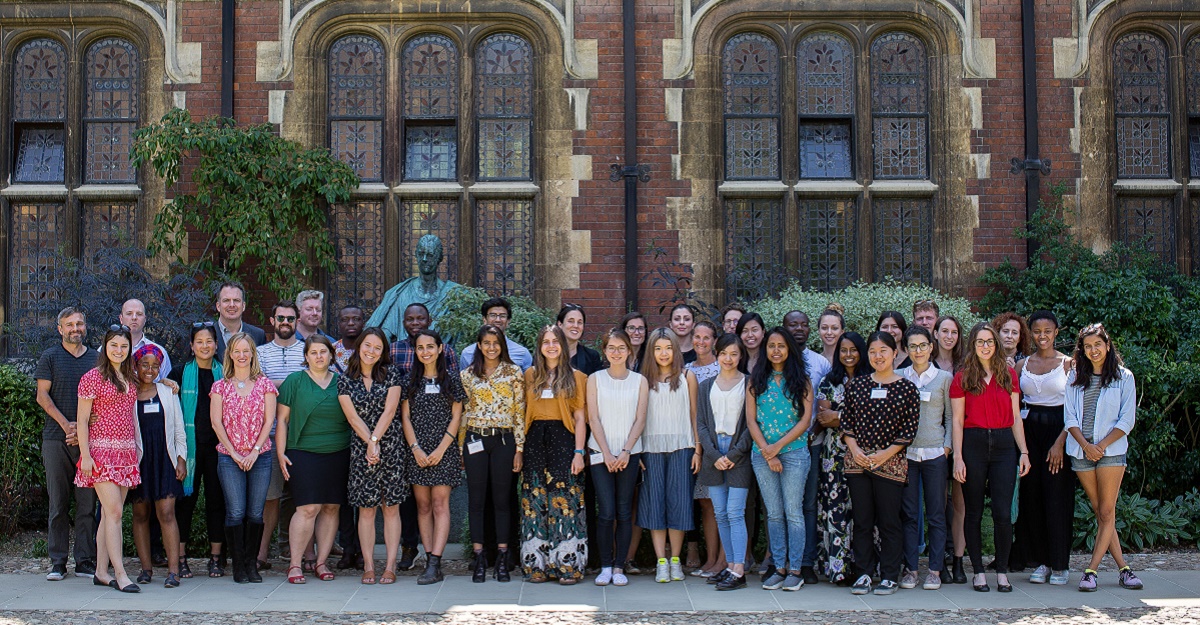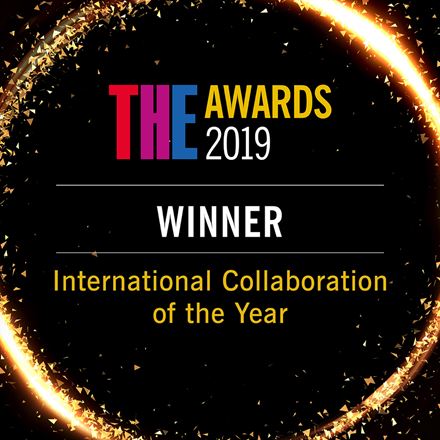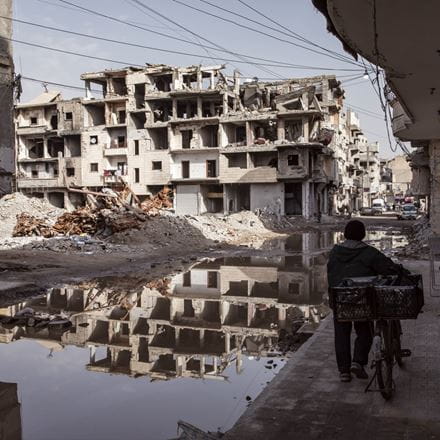Digital Verification Unit
The Digital Verification Unit works with Amnesty International and other partners to conduct investigations into human rights violations around the world, using open source techniques.
Recent advances in digital communications technology – and in particular social media and the spread of the smartphone – have revolutionized the practice of human rights. Victims of, and witnesses to, human rights abuses can now document their experiences and share them directly with the world. This information can then contribute to broader human rights documentation and accountability mechanisms. Indeed, the recent International Criminal Court arrest warrant issued against Mahmoud Mustafa Busayf al-Werfalli was based entirely on open-source digital information.
Building on longstanding work in the field, Essex Human Rights Centre launched a Digital Verification Unit in 2016 to strengthen the use of emerging technologies in human rights investigations and prosecutions. We have since created one of the first university-based Human Rights Investigations Units of its kind to conduct open-source investigations for international organizations and courts.
Amnesty International is our principal partner, and we are a member of their Digital Verification Corps. We also work with other partners such as NGOs and UN Commissions of Inquiry to advance human rights documentation and strengthen the veracity of information. This video recaps the work of Amnesty International’s Digital Verification Corps over the last year.
Students are trained to verify user-generated information – think videos or photos posted to social media, or shared on messaging services - and to use this information to investigate and document potential human rights violations or war crimes.
The Digital Verification Unit works to document and verify digital evidence pertaining to human rights abuses, and to use open source investigative techniques in the pursuit of accountability. It is run by Dr Matthew Gillett and Dr Sophie Duroy.
In November 2019, the DVC won the Times Higher Education Award for International Collaboration of the Year.
The Digital Verification Unit is affiliated with the Human Rights, Big Data and Technology Project, and is a member of the University of Essex Armed Conflict and Crisis Hub.
Our contributions
The Digital Verification Unit is part of many projects, the following is an example of our contributions.
Investigations conducted by several UN investigative mechanisms (2018-2023)
Members within the Unit have worked with several UN Commissions of Inquiry.
Submission to the Community Court of Justice of the Economic Community of West African States (2022)
Members of the Unit provided an expert brief to the ECOWAS Court verifying videos of police violence against protestors at the Lekki Toll Gate.
Raqqa Project with Amnesty International
The Unit participated in the verification of images of airstrikes and images of destroyed buildings as part of Amnesty’s wider project on Raqqa. On 25th April 2019, Amnesty International launched War in Raqqa: Rhetoric Versus Reality, an immersive, interactive report detailing the civilian deaths and the scale of destruction inflicted upon the people of Raqqa, Syria as a result of airstrikes by the US-led Coalition in 2017.
The Potential Use of Cluster Munitions in Syria with Amnesty
The Unit investigated the attack on Shayrat Air Base, and possible use of chemical weapons like chlorine gas and white phosphorus. The Unit also collaborated with the Syrian Archive working through their database of photos and videos and verifying them.
Report to Council on Ethics
The Digital Verification Unit contributed to the work of the Centre for Climate Crime Analysis, conducting an investigation into potential crimes committed in relation to the Cerro de Pasco mine. This work contributed to a report submitted by CCA to the Council on Ethics of the Norwegian Pension Fund requesting divestment from Glencore.
Our news
- In June 2019, the Digital Verification Unit participated in the annual Amnesty International Digital Verification Corps (DVC) Summit, held in Hong Kong.
- In 2019, the Digital Verification Unit students contributed to ground-breaking report by Amnesty International.
- The Digital Verification Unit at Human Rights Centre Clinic has produced an introductory guide, intended to assist human rights investigators in their use of open source information to document and report on human rights abuses.
In 2018, The Centre of Governance and Human Rights in Cambridge co-hosted the 2018 Digital Verification Corps Summit in collaboration with Amnesty International and with support from Open Society Foundations.
In December 2019, The Digital Verification Corps was named International Collaboration of the Year at the Times Higher Education Awards.
Members

Dr Matthew Gillett
Project Lead
Essex Law School, University of Essex
Dr Elif Kuskonmaz
Our members
2019-2020
Lina Abdelhafiz, Phiona Apio, Ryoko Arakawa, Amira Bayoumi, Noelle Bingireki, Cristina Blanco, Befekadu Bogale Biru, Alexander Devkota, Eloghosa Ehi-Imafidon, Samar Hassanen, Mariya Hoque, Serhii Ishynov, Bethany Jackson, Haruka Kanamori, Sophia Mashadi, Thomas Morgan, Hadeel Omara, Kristina/Charlotte Peitz, Alec Popper, Erika Rojas, Lea Rosner, Maria Salmanova, Coleen Scott, Hannah Turton, Bethany Webb-Strong, Phattranit Yaodam.
2018-2019
Current students studying at the University of Essex who are members of this year's unit include Dan O Eboka, Matteo Bassetti, Esme Marshall, Arlen S Millner, Mitchell E Paquette, Jasmine R Sinyinza, Kai W Cheng, Daniel Missenden, Valentine M B Hambye and Annalise A McWilliams.
2017-2018
Members of the unit in 2017-2018 who have since graduated from the University of Essex include; Katya Alkhateeb, Ayushi Kalyan, Francesca Fazio, Ilie Chirtoaca, Martin Kainz, Rebeca Nader Lopez, Angela Patino Palacios, and Tanya Roberts-Davis.







